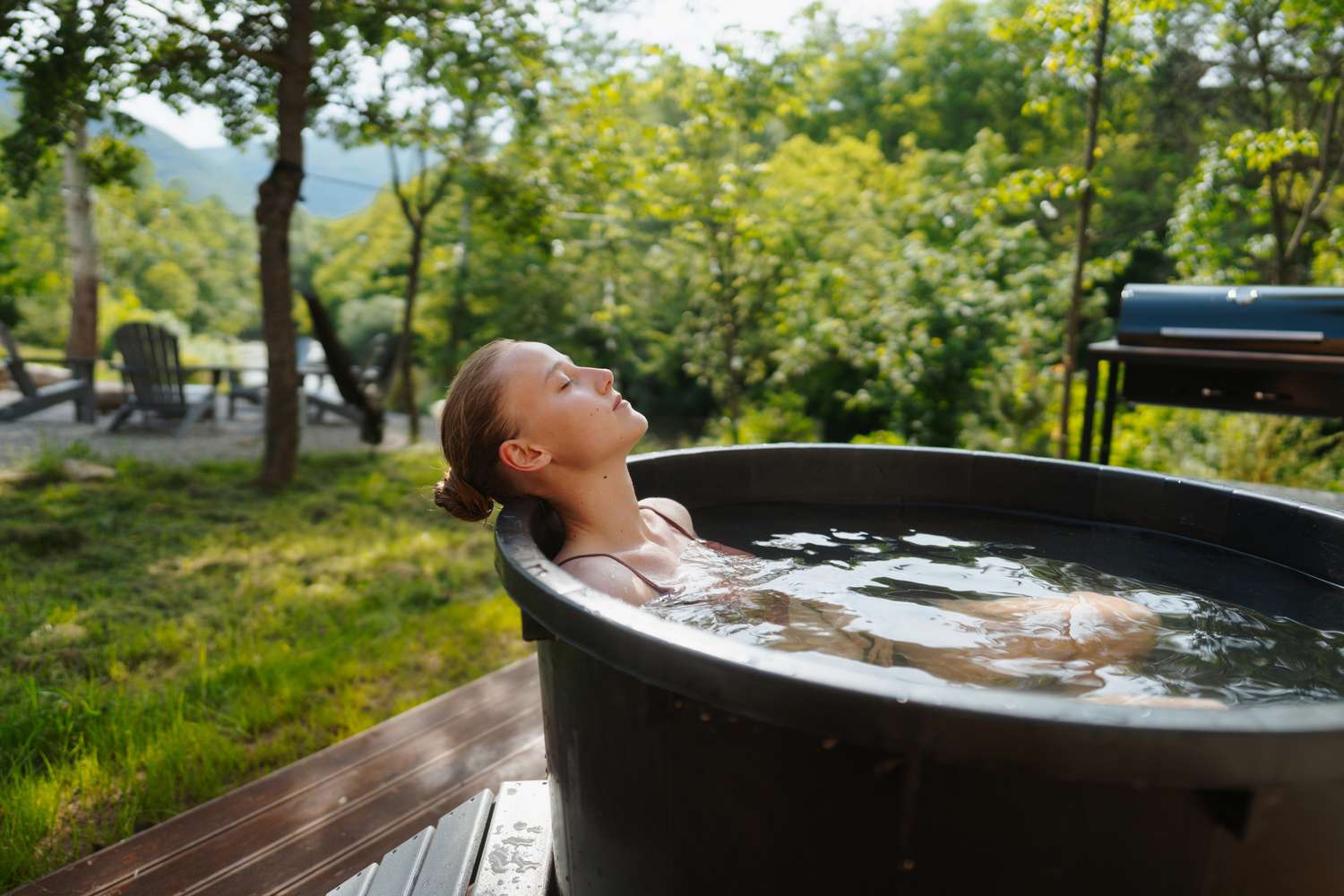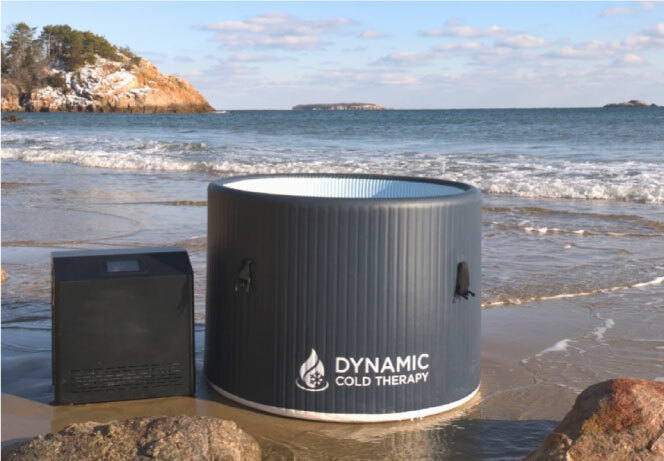Cold Plunge Before Exercise: Benefits & Cautions
There’s a constant resolution going on in the science of cold plunges and their fitness benefits that most of us are missing out on. One such notable finding is the “benefits of pre-workout cold plunges.
Don’t feel motivated enough to do high-intensity exercise? Take an icy plunge, and you’ll be ready! Feeling blue and fatigued, so can’t workout today? That's a valid excuse, but let’s make a final call after a cold dip because sometimes a little chill can be the perfect wake-up call.
However, the thought of immersing yourself in icy water before hitting the gym can give you pause, and you’re not alone. Many fitness enthusiasts are scratching their heads over the idea of taking a cold dip before a workout.
Chilly plunge is often touted for its recovery benefits after exercise, but it is also reported to be counterproductive for strength training and muscle hypertrophy. Therefore, it's crucial to weigh the benefits against the potential downsides. Let’s break it down.
Benefits of Cold Water Immersion Before a Workout
Helping sore muscles is just one benefit; cold water immersion can offer unique advantages when done right and at the right time.
According to scientific research, cold water exposure before a workout helps with overall performance, leading to muscle gain and speedy recovery. After analyzing people’s responses and relevant experiences on various social platforms, we found multiple individuals reporting increased motivation during their workouts, leading to an extra set of reps.
Boosts Peak Muscle Power
Cold plunges can significantly boost peak muscle power by delaying fatigue. Here’s how it works: mitochondria in your muscle cells convert glucose and fat into energy, but this process generates heat, which can damage mitochondrial DNA over time. As your body warms up, fatigue acts as a protective mechanism, reducing muscle output.
By cooling your body before exercise, you protect your mitochondria and extend their function, allowing you to maintain higher performance levels. This delay in fatigue can enhance peak muscle power by over 20%, enabling you to perform better during high-intensity workouts.
Enhanced Mental Focus and Alertness
A quick ice bath or cold plunge a few hours before your workout can trigger a rush of adrenaline, dopamine, and endorphins, boosting mental clarity and sharpening your focus. It’s like a jolt of cold energy, preparing you for the intensity ahead. This spike in alertness can also help you push through tough exercises with greater determination.
Note: If submerging yourself in icy water sends a shiver down your spine, try the Wim Hof Method (WHM) for a powerful and effective breathing technique to embrace the chill.
Prevention of Inflammation
Cold exposure reduces inflammation, which is usually associated with post-workout recovery, but it can also be helpful before a workout. By taking an ice bath well before exercise (a few hours in advance), you allow your joints and ligaments to feel less stiff, giving you better mobility during your session.
The Downsides of Cold Exposure Right Before Exercise
Vasoconstriction and Reduced Blood Flow
Cold plunges cause blood vessels to constrict, which can limit blood flow to your muscles. This is counterproductive when you're aiming for maximum performance during high-intensity workouts. Muscles may feel tight or sluggish, and your explosive power could be diminished if you plunge too close to your session.
Temporary Drop in Muscle Strength
Studies suggest that cold exposure can reduce muscle strength and power output immediately following the plunge. If you plan on sprinting, lifting, or engaging in fast, explosive movements, you might not reach your full potential if your muscles are still recovering from the cold.
Numbness and Stiffness
Ice baths can leave you feeling a bit stiff or numb if you don’t allow enough time for your body to warm up properly. This could impact your flexibility and range of motion, which are critical for avoiding injury during intense exercises.
The Best Timing for Cold Plunges
If you're still intrigued by the idea of cold exposure pre-workout, timing is key. A cold plunge a few hours before exercise gives your body enough time to warm up again, ensuring your joints and ligaments are ready to move at full capacity. This allows you to get the mental and performance benefits of cold exposure without sacrificing mobility or muscle power.
Alternatively, if your goal is post-workout recovery, the best time to take the plunge is at least four hours after your workout. This gives your body enough time to complete its natural hypertrophy response (muscle growth) before you reduce inflammation with the ice bath.
So, Should You Ice Bath Before a Workout?
The answer depends on your goals and timing. According to Andrew Huberman, a neuroscientist and professor, a cold plunge a few hours before your workout can cause a significant and prolonged dopamine spike, giving you an edge in high-intensity performance. However, plunging immediately before your workout could limit blood flow, reduce muscle strength, and lead to stiffness.
For most people, the best strategy is to save the cold plunge for post-workout recovery. It can work wonders on inflammation and muscle soreness, allowing you to bounce back stronger for the next session.
So, plan to plunge at least 2-3 hours before hitting the gym to give your body time to warm up and perform at its best. For more clarity, here are the best times to chill out:
Optimal Timing for Cold Plunge:
1. Pre-Workout:
A few hours before your workout can be beneficial. This timing allows your body to warm back up, helping to boost mental clarity and peak muscle power without significantly impacting performance.
2. Post-Workout:
If your goal is recovery, aim for at least 4 hours after your workout. This allows your body to complete its natural hypertrophy response before using cold exposure to reduce inflammation and soreness.
3. On Recovery Days:
Cold plunges can also be beneficial on rest days, helping to reduce muscle soreness without interfering with muscle growth.
In summary, the prolonged increase in dopamine from pre-workout cold exposure is excellent for enhancing motivation in individuals with dragging moods and lethargic feelings which leads to a lack of consistency in their workouts.


